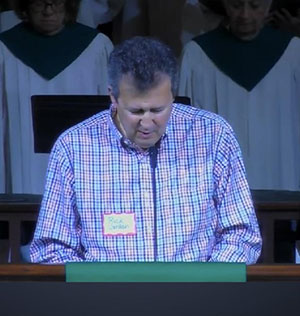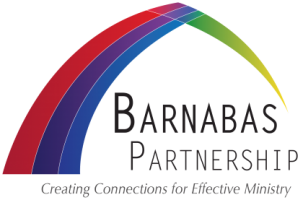
By Rev. Dr. Rick Jordan
“I’m not sure how to ask this,” said my friend, “but how did you learn to pray like that? Did you have a class in seminary?” This was about an offertory prayer I’d said recently at our church. He continued, “I only ask because your prayers are deeper than most prayers. I can tell you’ve put a lot into them.”
As a matter of fact, I did have a class on worship leadership. My professor had written a book on writing prayers for worship services. That was over 40 years ago. I don’t know if I could find that book or my class notes. But here are some things I remember from that professor. Thus, here are some suggestions about leading prayer for your meetings, small groups, or worship services:
- Begin with silence. Invite the participants, “Let’s pray.” Then, be silent for 20 seconds. This gives time for everyone to settle down, to put whatever they may be fiddling with down, to take a few deep breaths, and to pay attention to the next spoken words.
- Address God in a fresh way depending on the topic or theme of that day. There is nothing wrong with addressing God as “God” or “Heavenly Father”. But the opening of the prayer allows us to begin our focus. This will model what is already modeled for us in the Psalms where God is addressed as a rock, a shepherd, a judge, etc. There are good reasons why the psalmists did this. For one, the address of the prayer was not perfunctory.
- Fit the prayer to the flow of the meeting. An opening prayer is brief, inviting God’s presence and asking for God’s wisdom. A closing prayer is brief, thanking God for this time to meet, worship, or plan. It is also a time to ask for continued discernment and blessing. Intercessory prayers are often longer and are most powerful when people and situations are named. “Be with Tiffany as she gets her doctor’s report tomorrow” rather than “Bless all the sick people.”
- Teach during teaching times – not during prayer times. Some prayers that are addressed to God are really mini-lectures to the listeners or opinion pieces. Speak to God.
- In a public prayer when you are praying for the group, use “we” not “I”. It may be true that you love the Lord, that you are not worthy to worship, that you have personal needs that you want to forget for a while as you focus on God. Offer that prayer to God in your closet or on your drive to the gathering. When leading the gathering, the pronoun is “we”. “We love you. We are not worthy. We thank you.”
- Give your prayers a different twist. This is not to show your cuteness or to impress an audience. It is to inspire a fresh insight or perspective. For example, an offertory prayer can be so routine and rote that it catches no one’s attention. “We offer a portion of our resources in gratitude and pray that you will multiply these gifts for the building of your kingdom.” Yawn. Nothing is “wrong” with those sentiments, but the prayer is full of churchy cliches that no one will think about.
Here is another offertory prayer I wrote for a worship service earlier this month. I am not saying it is a “model prayer”, but it will illustrate some of what I’ve learned about offering public prayer.
God is great.
God is good.
Let us thank God for our food. [pause]
And for our shelter.
And for air.
And for the ability to breathe air hundreds of times a day without even thinking about it.
Let us thank God
For our family
And for our friends
And for our community of faith.
Let us thank God
For tears
For laughter
For forgiveness and reconciliation.
Let us thank God
For every good gift
And especially for the gift of Jesus Christ, our Lord
Who taught us that
God is great and
God is good.
How can we keep from giving?
Amen.
These thoughts are from Rev. Dr. Rick Jordan, our partner based out of Lewisville, North Carolina. He is a 20+-year member of Ardmore Baptist Church in Winston-Salem, NC where he leads an adult Bible study, serves as a deacon and on the Vision Navigation Team. He has also ministered in various leadership roles from local churches to state and national levels. Contact him for more information on how our partner can help you.
